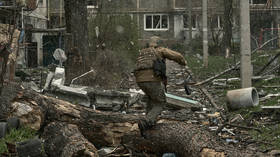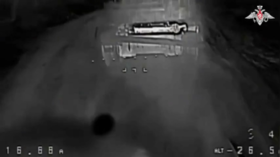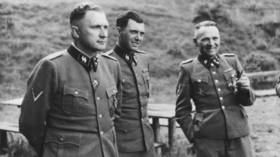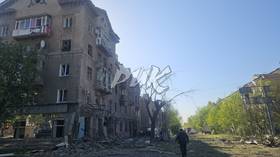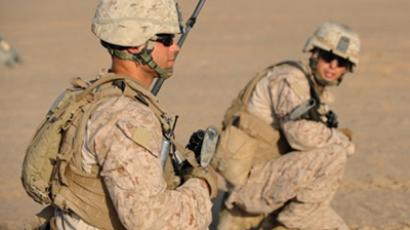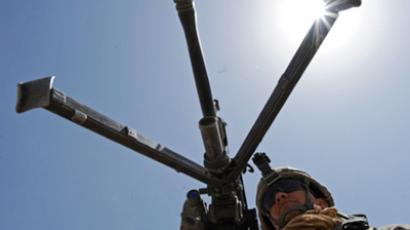Our mission will change from combat to support - Obama
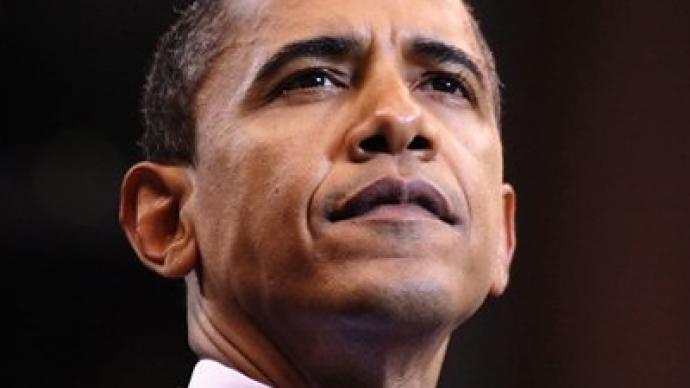
US President Barack Obama has promised to withdraw 10,000 American troops from Afghanistan by the end of 2011 and set a goal of withdrawing another 20,000 by the end of 2012.
“As a result, starting next month, we will be able to remove 10,000 of our troops from Afghanistan by the end of this year, and we will bring home a total of 33,000 troops by next summer, fully recovering the surge I announced at West Point,” Obama said in his address from the East Room of the White House in Washington on Wednesday night. As for the troops due back in America in 2011, the return is set to happen in two waves with 5,000 soldiers returning this summer and another 5,000 by the end of the year. "By 2014, this process of transition will be complete, and the Afghan people will be responsible for their own security," Obama stressed. The president’s decision follows weeks of internal deliberations in the White House and Pentagon over the US mission in Afghanistan, where Taliban forces continue an insurgent campaign against a 100,000-strong American force fighting within the broader NATO coalition.The president said that when he ordered the 33,000 extra troops to Afghanistan in 2009, they had a clear mission: to refocus on Al-Qaeda, reverse the Taliban's momentum, and train Afghan security forces to defend the country. "Tonight, I can tell you that we are fulfilling that commitment," he said, adding, "We are meeting our goals."But despite the surge, the US will continue to pressurize Pakistan over fighting terrorists."No country is more endangered by the presence of violent extremists, which is why we will continue to press Pakistan to expand its participation in securing a more peaceful future for this war-torn region. We'll work with the Pakistani government to root out the cancer of violent extremism, and we will insist that it keeps its commitments," Obama said. Most Americans oppose the war in Afghanistan and are far more concerned about the teetering economic recovery at home.“Over the last decade, we have spent a trillion dollars on war, at a time of rising debt and hard economic times,” Obama said. “Now, we must invest in America’s greatest resource – our people. America, it is time to focus on nation building here at home,” he added.US defense secretary Robert Gates who is leaving his post by June 30 has endorsed Obama’s plan, saying it would give commanders enough time to succeed. "I support the president's decision because it provides our commanders with enough resources, time and, perhaps most importantly, flexibility, to bring the surge to a successful conclusion," Gates said in a statement issued after Obama announced his plan.Afghan war veteran turned peace-activist Jake Diliberto told RT that NATO should overhaul its approach to Afghanistan if it really wants to bring peace and prosperity there.“The longer we stay in Afghanistan, the more enemies we create, because what happens in war are unintentional consequences, innocent people get killed, more people join the insurgency than normally would. Not having troops there does not allow the insurgency to grow. We have seen every year the longer troops stay the insurgency grows and anti-American, anti-Western, anti- European sentiment grows. So that is why we should leave more importantly than not.”
And while attention in the US is focused on the planned withdrawal from Afghanistan, the number of contractors in the country has been steadily increasing.Ivan Ealand, Director of the Center on Peace & Liberty, says it is possible some of those soldiers will simply be replaced by private security personnel acting away from the public eye.“The American public is fed up with the war. Sixty-four per cent of the American public in a recent poll said that they want the US forces to begin pulling out. And of course the real challenge is just to hold the territory when the US leaves and that would fall to the Afghan forces. But the Afghan forces are incompetent and corrupt and they just don’t seem to be better after ten years of training. So there are a hundred thousand contractors in Iraq which equals the number of US forces there. And certainly the troops are coming back for a political reason. So it is not out of the possibility that they are doing a shell game and replacing the military forces with contractors.”
Obama is only pulling back the surge troops he sent in two years ago, while the US will still have nearly 70,000 troops on the ground in Afghanistan. Voice of Russia radio host and analyst Ricardo Young doubts that the president’s announcement will lead to a complete pullout. “Let’s look at the history of America in most countries that they’ve had some kind of conflict in or some interest in,” said Young. “World War II ended, but the United States is still in Germany, in Korea, in Japan. And as many critics of the Obama administration have said, despite how many people the president announced he is going to withdraw, there may be a US presence in Afghanistan for decades to come.”
There are more than 100,000 U.S. troops in Afghanistan, of which about 30,000 are part of the U.S. surge ordered by Obama in 2009.
But ex-CIA officer Jack Rice says it is a mistake, and that local Afghan forces are not ready to take over.“I think the Department of Defense and the White House are probably mischaracterizing how successful this is,” he argued. “One of the problems is [the suggestion] that somehow the US has broken the Taliban, or separated the Taliban from Al Qaeda. The fact is that the Taliban and Al Qaeda were separate organizations from the beginning, and simply characterizing them all as the same bad guys was one of the biggest mistakes the US ever made. We are going to see more instability.”





